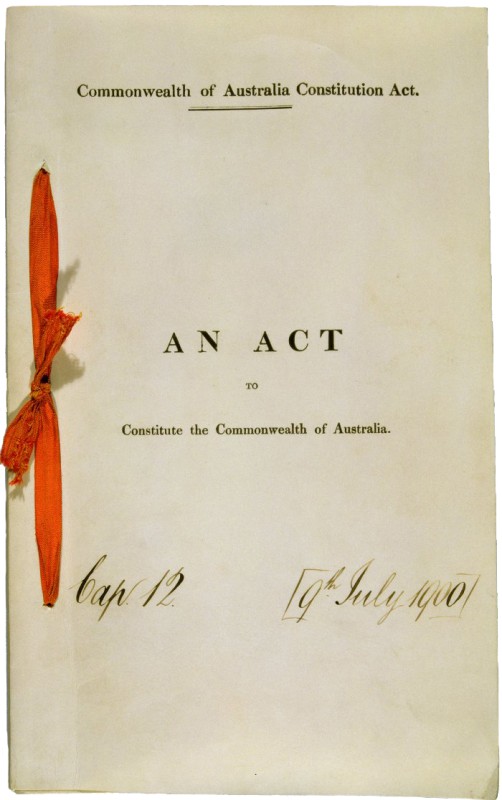What is the difference between exclusive, concurrent and residual law-making powers?

Commonwealth of Australia Constitution Act, 1900: Original Public Record Copy (1900).
Parliament House Art Collection, Art Services Parliament House
Commonwealth of Australia Constitution Act, 1900: Original Public Record Copy (1900).

Parliament House Art Collection, Art Services Parliament House
Description
This image shows the front page of the original public record copy of the Commonwealth of Australia Constitution Act 1900.
Permission for publication must be sought from Parliament House Art Collection. Contact DPS Art Services, phone: 02 62775034 or 02 62775123
Thanks for the complex question Trudy!
In the Australian system of government, law-making powers are divided between the federal and state parliaments. The terms ‘exclusive’, ‘residual’ and ‘concurrent’ are used to categorise law-making powers based on which parliament can use them – the federal Parliament, state parliaments or both.
The Australian Constitution sets out the law-making powers of the federal Parliament. Some of these powers can only be used by the federal Parliament, not state parliaments. These are called ‘exclusive’ law-making powers. For example, section 52 of the Constitution says that only the federal Parliament can make laws about the federal public service.
Other law-making powers can be used by both the federal Parliament and state parliaments. These are called ‘concurrent’ powers. For example, under the Constitution, state parliaments and the federal Parliament can make laws relating to the environment, marriage, and tax. However, if a state parliament makes a law which is inconsistent with a federal law, section 109 of the Constitution states that the federal law overrides the state law.
Unless the Constitution says otherwise, state parliaments can also use the law-making powers they had as colonial parliaments (section 107) before Federation. These are called ‘residual’ law-making powers and cannot be used by the federal Parliament.